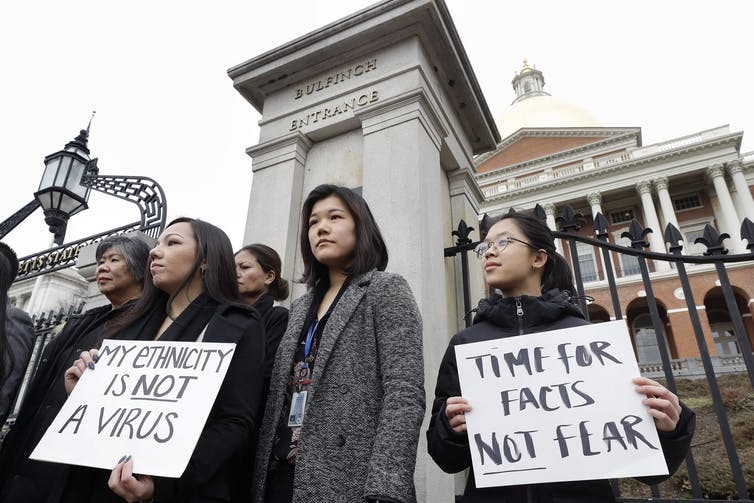Since the onset of the COVID-19 pandemic in Canada, incidents of anti-Asian racism across the country have surged. In Montreal, several statues at Quan Am temple were defaced, the main gates of Chinatown were vandalized, and a Korean man walking to a market was stabbed in the city’s Notre-Dame-de-Grâce neighbourhood. Between March and December 2020, the Montreal Police Service (SPVM) recorded 30 crimes targeting Asian-Montrealers, a five-fold increase from 2019. These statistics are disheartening, but they still do not reflect the underreported racial slurs and stereotypes that Asian-Canadians face every day in the workplace, at school, or simply while minding their own business in public. Often, anti-Asian racism is dismissed as harmless, which only normalizes discriminatory behaviour and undermines the severity of these issues.
Walking through the streets as an Asian person in Montreal or even on McGill campus, it is not unusual to hear a racial slur directed my way. A significant part of my racialized experience is not necessarily being a target of racism but constantly anticipating when it will come next. That is why I plug in my AirPods, hit shuffle on Spotify, and turn up the volume to avoid hearing any racist remarks hurled my way. When asked where I am from, no one is satisfied with my answer of “Vancouver”—where I was born and raised—and often go on to ask where my parents are from, only content when I reply with “Hong Kong.” Time after time when I rebuke these remarks, I am told by a non-Asian person that their behaviour is not racist and that their “Ni Hao” just meant that they wanted to say hello. These incidents are hostile and enraging; I remember every one, and I dwell on some for months.
The recent spike in hate crimes towards Asians in North America has been attributed mainly to the rhetoric purposely used by the previous U.S. President, who referred to COVID-19 as the “Chinese virus.” While the former President’s large platform amplified his remarks, they are still no different from the derogatory slurs that have long been casually tossed around by individuals. These remarks encourage hate, and their widespread use normalizes anti-Asian racism to a point where the damage to Asian people is overlooked. As a result, I often shove aside my experiences of racism, believing that they are less important because there are other BIPOC facing more severe forms of oppression.
Anti-Asian racism is not limited to harmful rhetoric—these beliefs also perpetuate discriminatory behaviour. Common stereotypes labelling Asian people as smart and hardworking have portrayed them as one-dimensional, reducing their chances of getting hired or promoted to managerial positions. A report presented by Ascend Pan-Asian Leaders found that, of minority groups, Asians were the least likely to be promoted to executive positions in Silicon Valley—even though they are the most likely to be hired by tech companies. The pandemic has only surfaced how harmful these attitudes can become, and yet anti-Asian racism is still swept under the rug until a videotaped assault grabs our attention.
As McGill students return to campus for the Fall 2021 semester, many Asian students will be doing so in fear of becoming the victims of COVID-19–related hate. As social distancing and quarantine have instilled a sense of loneliness in all of us, the additional xenophobia rampant towards Asian Canadians adds to feelings of ostracization. Asians are not the carriers of coronavirus, and rhetoric blaming us for the pandemic must stop. While vaccines can snuff out the pandemic, Canadians must dismantle the discrimination that faces Asian-Canadians and continue to examine under-platformed forms of racism.









